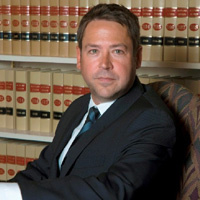Kennedyville DUI-DWI Lawyer, Maryland
Sponsored Law Firm
-
 x
x

Click For More Info:
-
Cromwell & Associates, LLC
7305 Baltimore Ave Suite 307 College Park, MD 20740» view mapEstate, Tax, and Real Estate Law Where Every Client Matters
At Cromwell & Associates, our firm is large enough to handle your diverse needs, but small enough to give you the personal attention you deserve.
240-667-7234
Charles Waechter
✓ VERIFIEDBel Air Criminal Defense Law Firm If you face criminal charges, an experienced and respected defense lawyer can help protect your rights, evaluate ... (more)
Patrick Preller
✓ VERIFIEDThe Law Office of Patrick S. Preller is dedicated to serving both the community of Baltimore as well as the residents of the State of Maryland. With ... (more)
Harry M. Rifkin
✓ VERIFIEDA native Baltimorean, Mr. Rifkin has spent his career helping people. He graduated college in three years from the George Washington University with... (more)
Charles Waechter
✓ VERIFIEDAnnapolis Criminal Defense Law Firm If you face criminal charges, an experienced and respected defense lawyer can help protect your rights, evaluat... (more)
James E. Crawford
✓ VERIFIED**Helping Good People in Tough Situations Since 1992** My name is Jim Crawford. I founded the Law Office of James E. Crawford, Jr., & Associates --... (more)
Charles L. Waechter
✓ VERIFIEDBaltimore Criminal Defense Law Firm If you face criminal charges, an experienced and respected defense lawyer can help protect your rights, evaluat... (more)
FREE CONSULTATION
CONTACT Stephen Cromwell College Park, MD
Stephen Cromwell College Park, MD AboutCromwell & Associates, LLC
AboutCromwell & Associates, LLC







